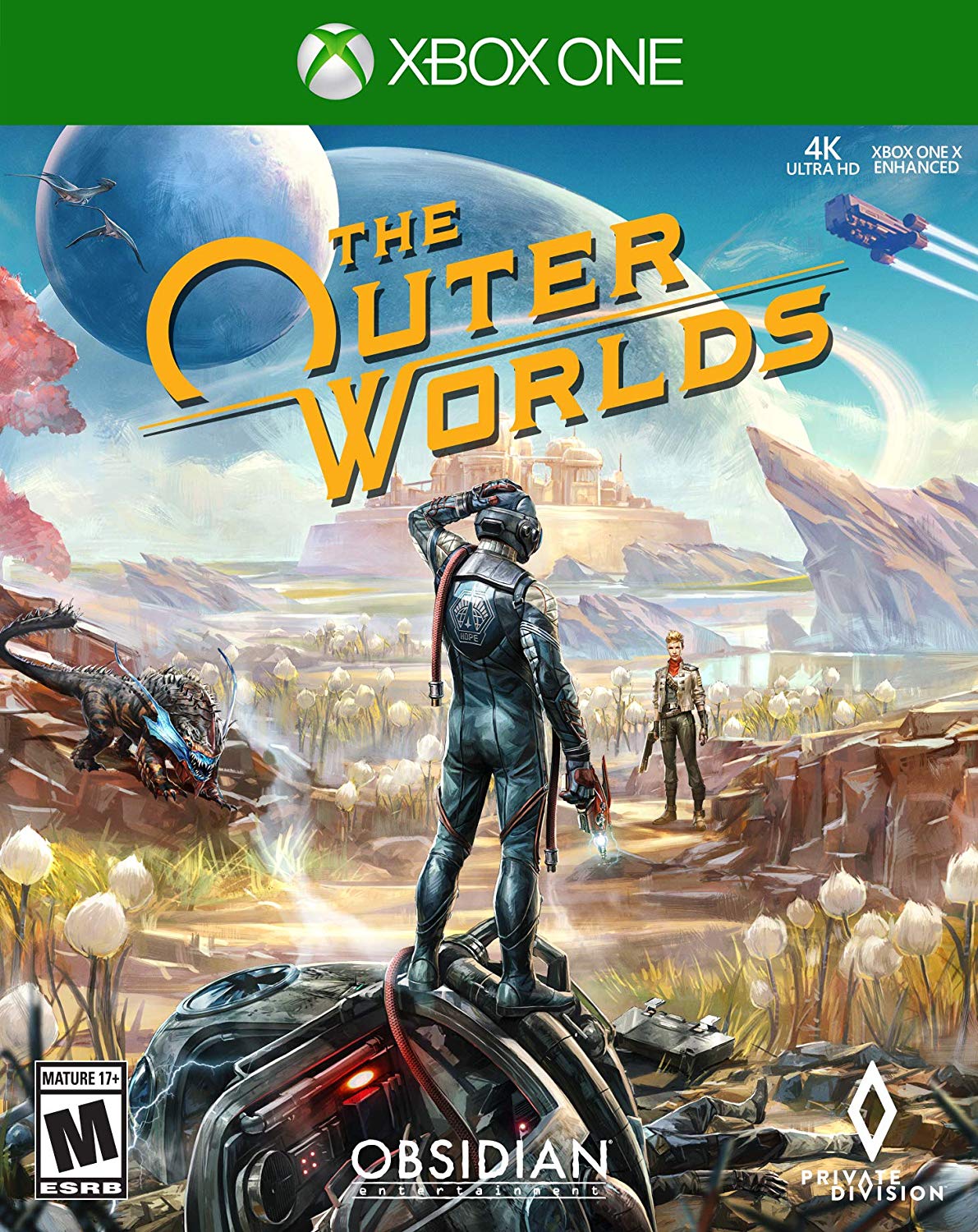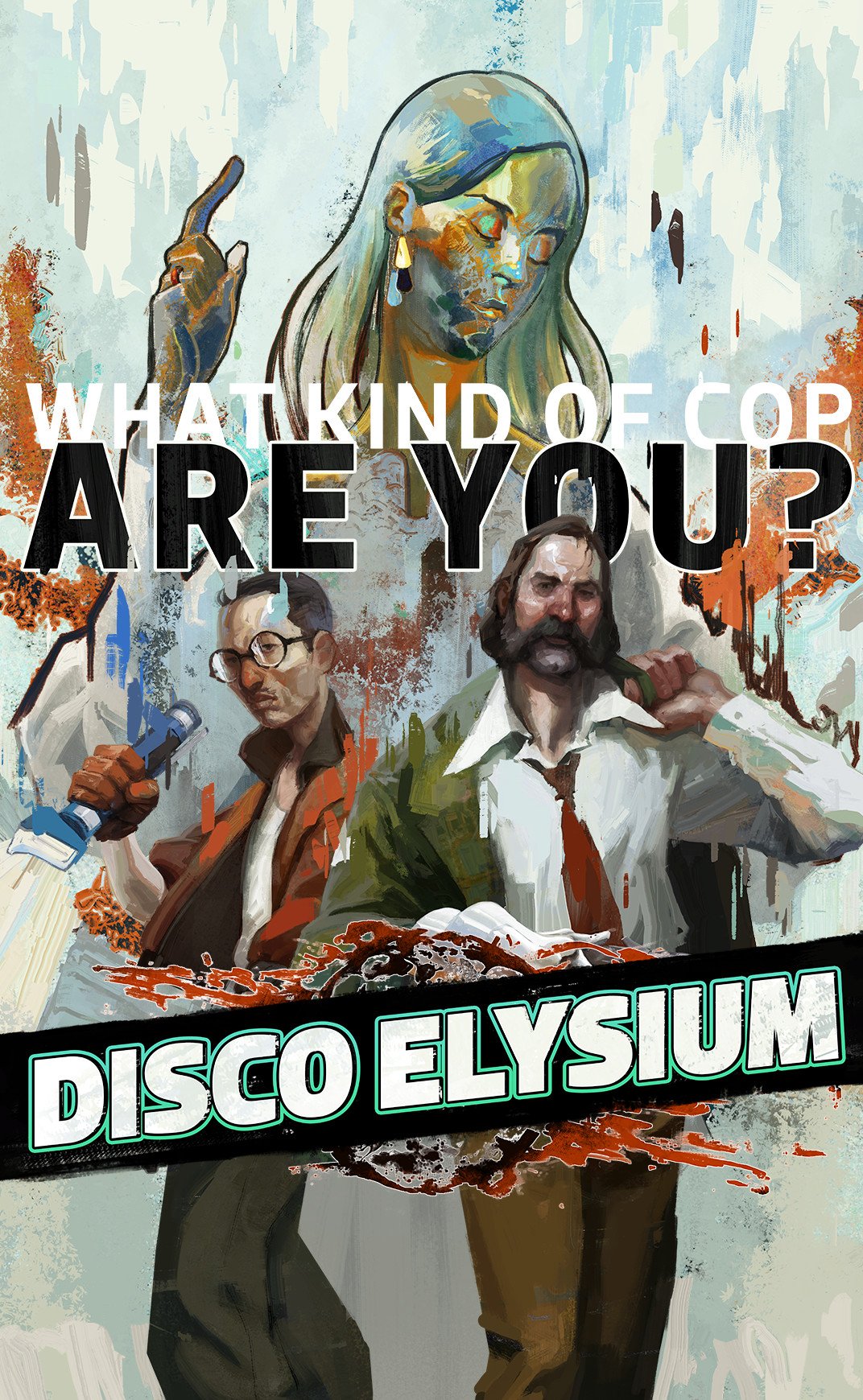2019 was the year that capitalism became video games' greatest villain
Borderlands 3, Disco Elysium, and The Outer Worlds all approach it differently, but all have the same antagonist.
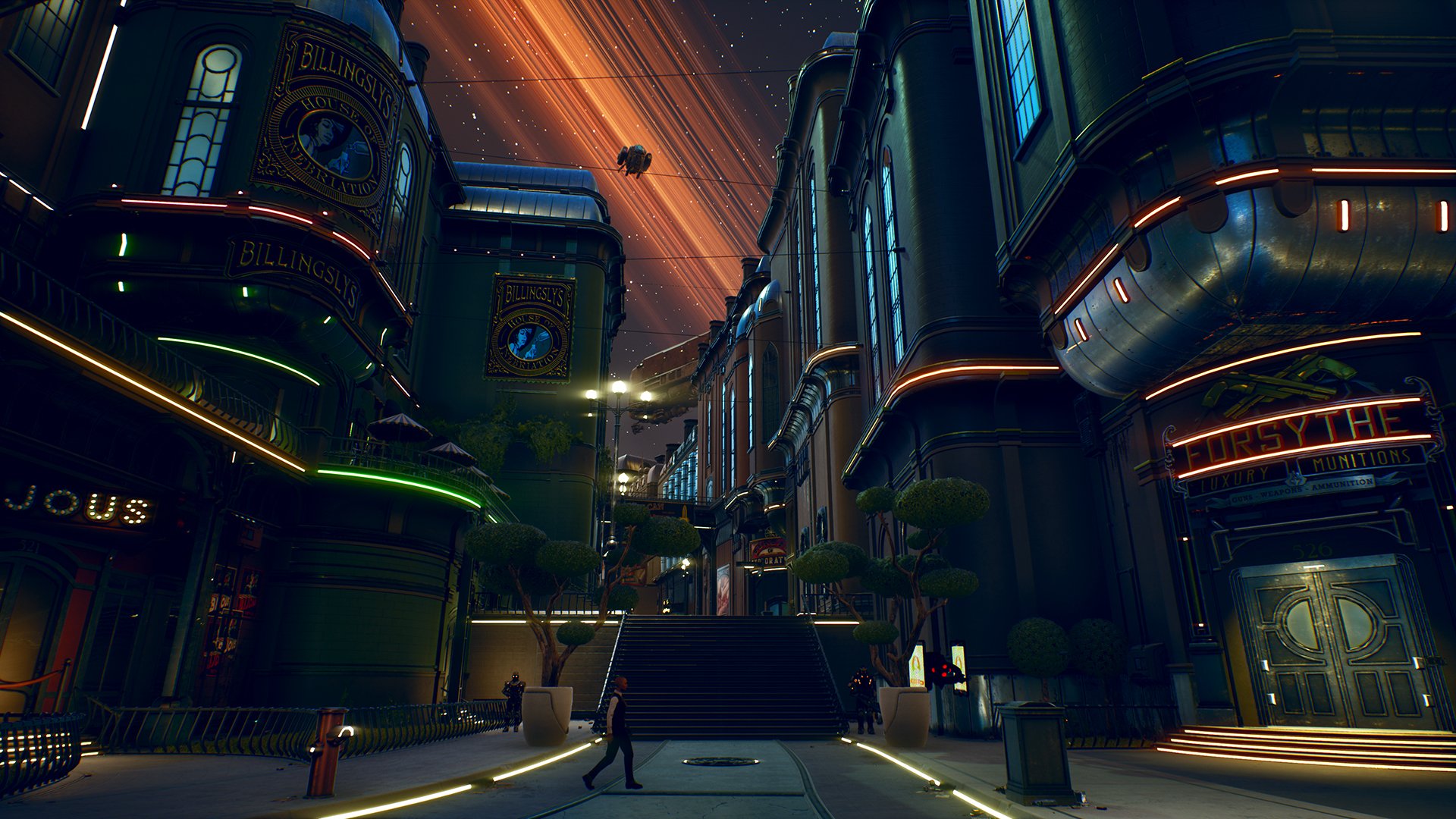
This year, video games realized that the biggest villain of all was capitalism.
That isn't to say that a version of the rich hasn't been the antagonist before. Class revolt is a tale as old as modern history. However, the system of capitalism, the structure of class inequality, has never been at the forefront of the media we consume so consistently. Us, the horror movie that came out in early 2019, posits a world where the subjugated lower class rise up from the underground, where they were tucked away from the privileged up above, and take out those with the lives they deserve. Ready or Not tells the story of a lower-class woman who becomes the target of a group of upper-class weirdos who want her dead only so they can keep living their cushy lives.
That extends, of course, into video games. The last couple of months brought us three games that utilized capitalism as the villain in one way or another: Borderlands 3, The Outer Worlds, and Disco Elysium. These games tackle the idea in different ways — some more successful than others — but they suggest that the issue is at the forefront of a lot of people's minds.
Borderlands 3: Literal hostile takeovers
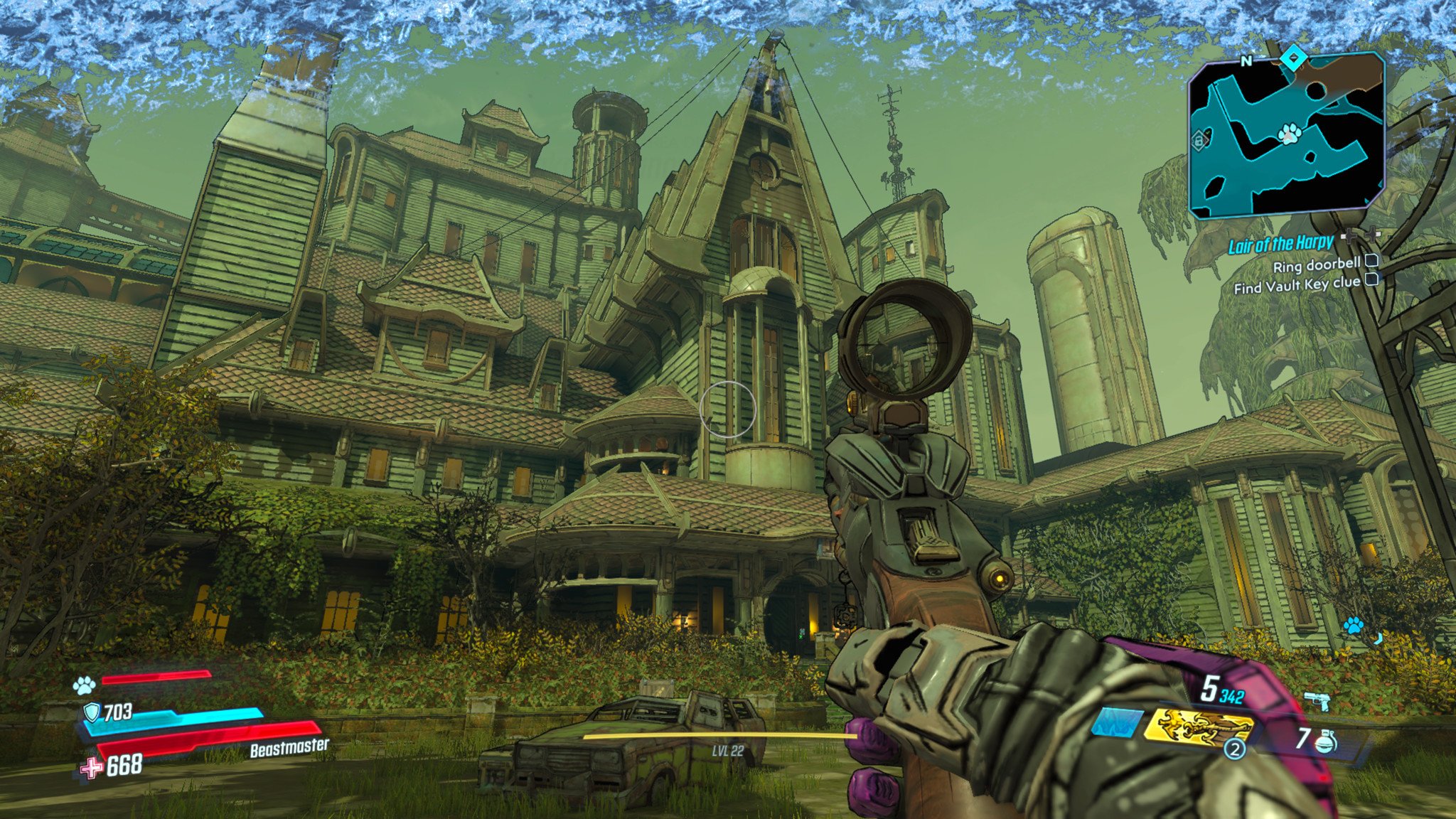
The Borderlands franchise has always been about this tangentially. Pandora is a world that was destroyed by greed, with corporations leeching off the land, bringing prosperity to the everyday citizen, and then backing out. They created a foundation and then pulled it out like a rug from underneath everyone, allowing everything to fall into disrepair and anarchy.
The problem with Borderlands is that it never grapples with its socio-economic foundations enough.
The series is packed with both light and dark humor that simultaneously draws attention to the socio-economic past of this planet while forcing you to ignore it, which can be to its detriment. Borderlands 3 especially suffers, and with its renewed focus on the corporations compared to other entries, it's disappointing that the story doesn't lean more on it. The corporations and their avatars (Aurelia Hammerlock, in particular) are definitely the villains. Still, the depth of their characterization is about their exorbitant wealth and their apathy towards violence, which is common throughout the Borderlands universe, no matter the character's status.
The one exception to the one-note "corporations are evil" foundation in Borderlands 3 is the story of Atlas and how Rhys is trying to turn the company around. His mission statement is about how not all corporations are bad because Atlas is nice now. That's nice in theory but doesn't sway the story in one direction or another. You help Rhys out, and you move on to another corporation. There isn't anything more profound than that concerning how Rhys grapples with his past as a lackey at a similar corporation or the morality of its existence in the first place. Atlas has a horrible history, and no amount of goodwill can change that.
The problem with Borderlands is that it never grapples with its socio-economic foundations enough. The emphasis is on crass jokes that are sometimes funny but almost always elicit reactions from the player. The series is about the gameplay, the looting, and, occasionally, the characters. It's never been a series about the foundation it built but rather the indifference it causes.
All the latest news, reviews, and guides for Windows and Xbox diehards.
The Outer Worlds: We live in a society
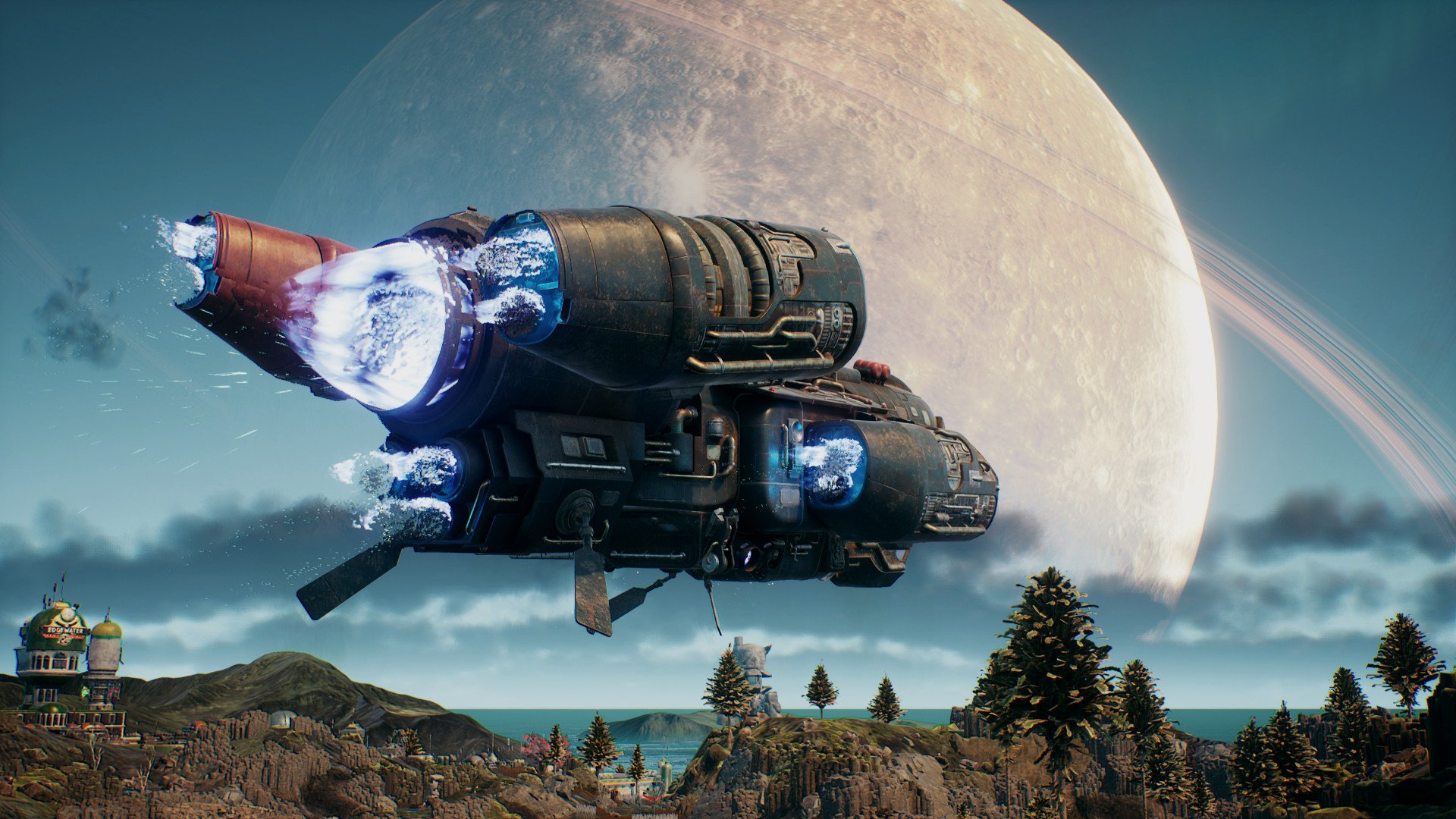
The Outer Worlds goes a lot further, at least attempting to grapple with the same idea. The corporations came in, colonized planets, and either backed out or set up systems that favor the rich. As the player, who is thrust into this situation after decades in cryostasis, you not only have to learn about how everything works but have the freedom to decide if you can do anything about it. You're tasked multiple times with deciding the future of corporation-run settlements and whether they should be left alone or destroyed (of course, you can ignore all of that and just kill everybody you meet, which is the fun of The Outer Worlds).
The game revels in moral ambiguity and creating quandaries for the player, but doesn't have much to say beyond that things are complicated.
I started my first playthrough with an anti-capitalist stance, which goes along with what the game wants you to think initially about these entities. The first person you meet outside of the mad scientist that woke you up is a man who regurgitates a company's slogan multiple times. The first town is ripe with bureaucracy, including a system that punishes the sick and the suicidal in favor of running efficiently. It's easy to say "down with capitalism" within this structure.
However, things are more complicated. The alternatives aren't much better — often run by idiosyncratic psychopaths or the angry and desperate — so a lot of choices come down to which one you think is the lesser of two evils. Do you want to stick with your morals, or do you want to maintain the system because it'll hurt the least amount of people?
What The Outer Worlds wants you to think about is how ingrained capitalism is in societal structures. You can topple Spacer Choice's hold on Edgewater, for example, by redirecting power to the settlement of exiles. Still, you'll mostly be harming the residents, since Spacer's Choice doesn't care about the quality of life. Later you can choose to help out either a corporate stooge or his anarchist counterpart. The former is mostly a pathetic bootlicker, but mostly harmless, while the other was complicit in mass murder. Is your anti-capitalist stance worth it?
This is a simplistic, centrist interpretation of "capitalism as evil." It's pessimistic and values, as Patrick Klepek at Vice put it, pragmatism over revolution. It's an outwardly political stance in a world where other AAA games want to stress how apolitical they are but remains safe because it doesn't take an extremely partisan view. It does make the player question the value of a system run by corporations (which is one we're increasingly moving toward in multiple countries) by making the corporations distant idiots but only goes far enough to question how we think about toppling that system. The game revels in moral ambiguity and creating quandaries for the player, but doesn't have much to say beyond that things are complicated.
Disco Elysium: Everything is screwed
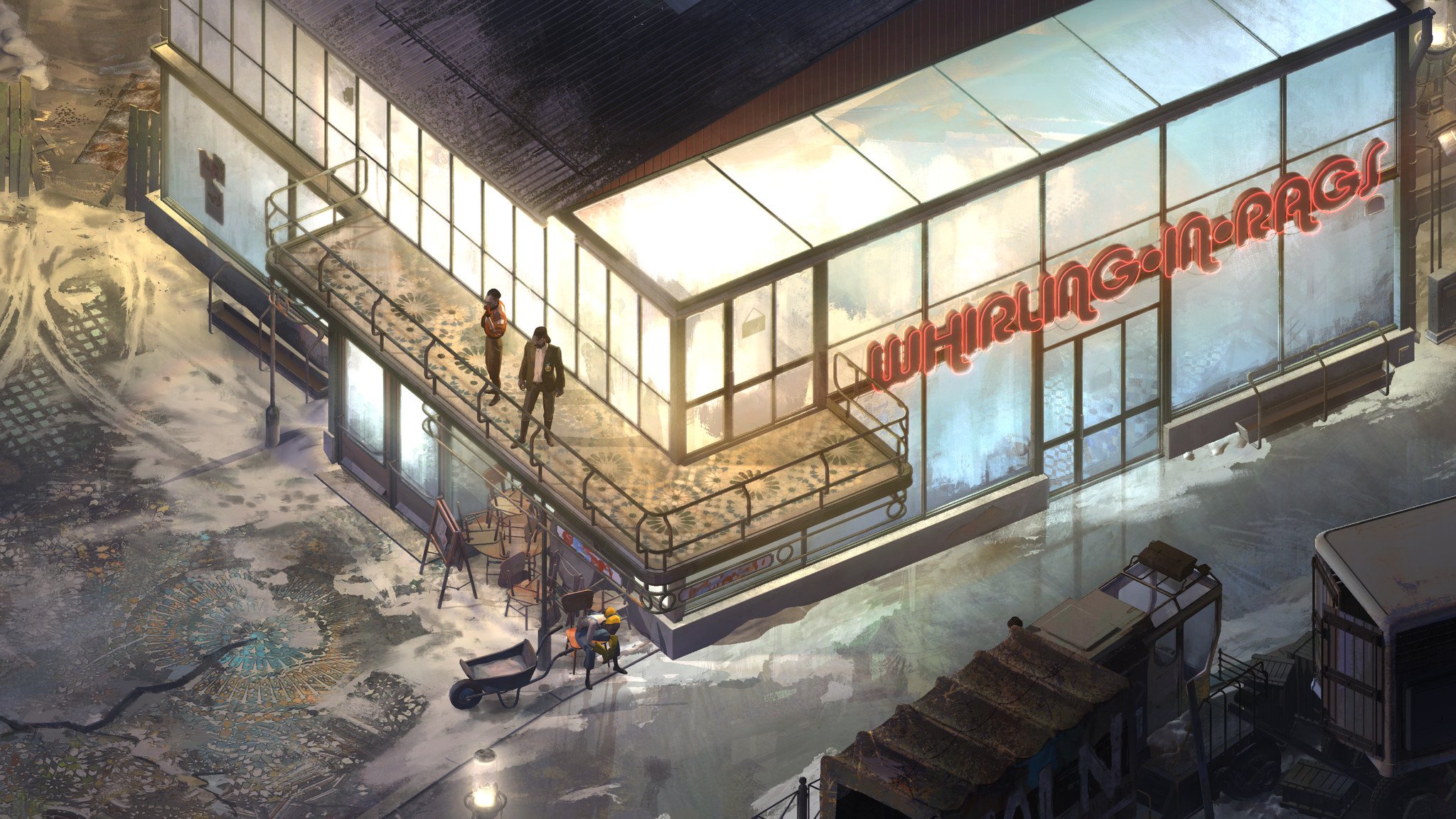
The final game here, Disco Elysium, has no qualms about taking an ideological stance on the issue. In fact, it delights in creating situations where your understanding of how structures like capitalism and race theory affect our thinking, our relationships with other people, and how ultimately they don't matter.
In case you missed it, Disco Elysium is a CRPG developed by indie studio ZA/UM. It's inspired by old-school CRPGs and tabletop games, specifically in how they present situations and dialog, but it goes above and beyond. It parodies the task of using skill checks to make choices by forcing you to do it each time you want to do anything. Want to admire a piece of art? The dice will roll. Want to try and get your tie from a ceiling fan without dying? Check again. Want to wake up from an alcoholic stupor and discover your basic amphibian brain? Go for it.
The important thing to note about Disco Elysium is that through its absurd, over-the-top structure, it crafts a world filled with failure.
It all sounds obtuse, but the critical thing to note about Disco Elysium is that through its absurd, over-the-top structure, it crafts a world filled with failure. The lower classes rose up in revolt and failed. The communist workers are on strike but are failing. The government body and its mercenaries are trying to stop the strike, but are failing. You are a cop hired to solve a murder that is connected to this economic conflict, but are failing so spectacularly just trying to walk that it's hilarious and sad. You can't even find a place to sleep at night.
That failure also translates its central thesis: that the world is screwed. The game's world, which is an alternate version of our own, lops multiple ideologies onto the player, forcing you to engage with the minutiae of them if you want. But mostly, it's asking you to either buy into it for the sake of completing a quest or getting on an NPC's good side. Disco Elysium also has a thought system that lets you contemplate concepts like self-destruction and communism to gain skills or knowledge. It's a world filled with people overthinking and believing too hard in horrible ideologies like racism (yes, really), and you're forced into it.
This all pertains to its views on capitalism and socialism. It perfectly captures the imperfection of every system, forces you to engage with it, understand their moral problems, and show you how you can do nothing about it. It's The Outer Worlds ramped up to 11. It traps you and cynically forces you to engage regardless of your power. Whether you solve a murder or not is inconsequential because everything around you will hold you back. It's not a fresh take, but it's one of the most complex. How can you complete quests in a game that adheres to a quest system and makes it impossible for you to do so? How does that relate to your actual situation outside of the game?
Bottom line
It might not matter to you at all what games thinking of capitalism, corporations, and other economic issues, but all of this stuff matters to games. The industry is more profitable than it's ever been, but studios are closing, and hundreds of workers are losing their jobs. Think of all the companies at the center of these discussions: Telltale, Activision Blizzard, Amazon Game Studios, ArenaNet, EA Australia's Firemonkeys, and many, many more. Studios have been shut down, and hundreds have been laid off, and that's just been in the past year and a half.
As more video game staffers lose their jobs, unionizing is a more pronounced topic than ever before. Issues of burnout and crunch are at the forefront of the news as well, crafting an image of an industry that needs to change for the sake of its workers.
Three big releases just over the past couple of months have been about the very thing that's affecting the games industry the most right now. The people creating these games are often supported by big corporations, but is it tough to assume that there's a connection?

Carli is the Former Gaming Editor and Copy Chief across Windows Central, Android Central, and iMore. Her last name also will remind you of a dinosaur. Follow her on Twitter or email her at carli.velocci@futurenet.com.

